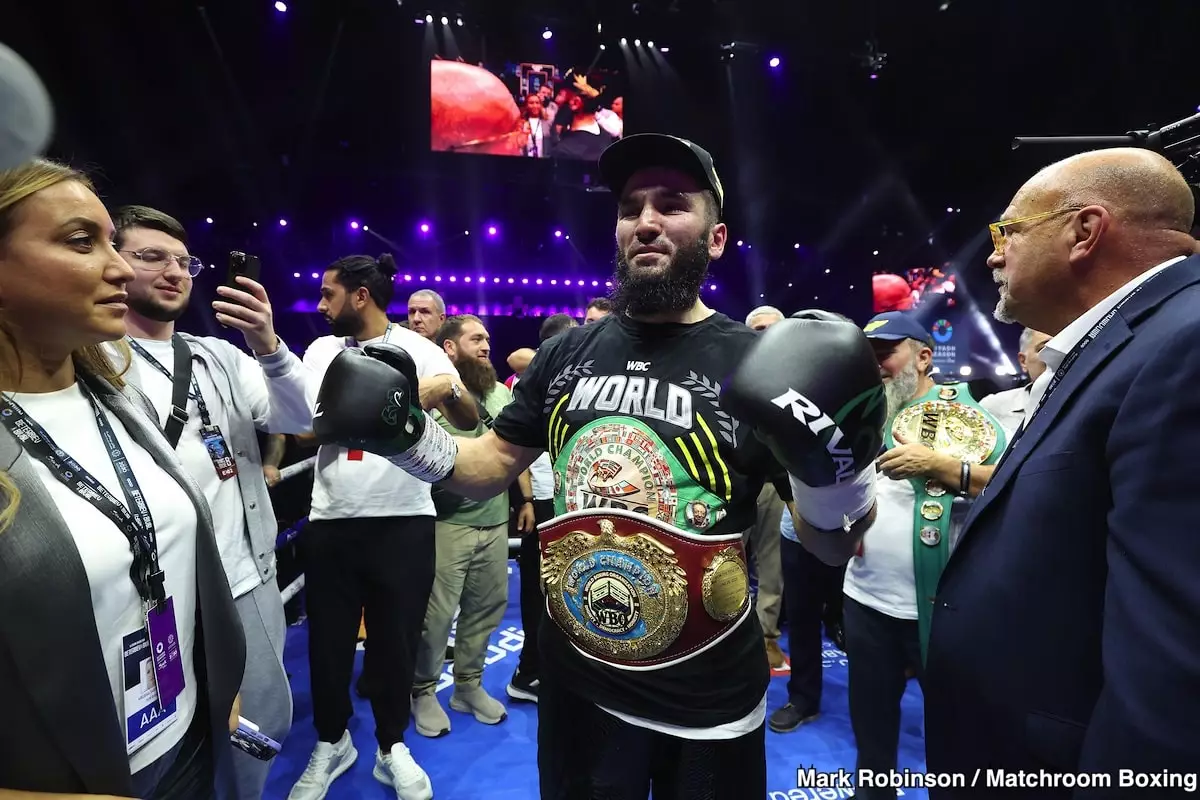In the world of professional boxing, few moments can match the anticipation surrounding a unification bout. The recent clash between Artur Beterbiev and Dmitry Bivol, held in Riyadh, Saudi Arabia, was no exception, attracting a global audience eager to witness the contest of two elite light-heavyweights for all four major championship titles. However, rather than celebrating the remarkable talent and skill demonstrated by both fighters, the post-fight narrative has been dominated by the judges’ controversial scoring—a recurring theme that mirrors the frustrations of boxing enthusiasts everywhere.
Bivol’s performance showcased technical precision, agility, and strategic mastery, traits that were vital against a formidable opponent boasting a perfect knockout record. Yet, despite Bivol’s apparent superiority in skill and execution, the unanimous sentiment among fans and analysts—that he had secured the victory—was overshadowed by the judges’ bewildering scorecards. With one judge calling it a draw at 114-114, and the others favoring Beterbiev by scores of 115-113 and 116-112, Bivol’s valiant effort seems to have been disregarded, creating a dissonance in perception and reality.
The boxing community has been thrust into another debate about judging criteria, transparency, and accountability within the sport. The judges’ decisions, which many deem erroneous, precipitate a deeper questioning of the systems in place that govern the scoring in professional boxing. Why is there such a vast gap between the public’s perception of the fight and the official scores?
While some have reiterated that scoring is inherently subjective and open to interpretation, this approach does little to assuage the feelings of injustice that often linger after bouts marred by poor officiating. The assertion that one judge could score the fight a draw, while others favored Beterbiev, illustrates an alarming inconsistency that hinders the sport’s credibility. The outcome prompts a broader call for reform: should we explore alternative methods of judging? Could advancements in technology provide fairer, more accurate ways to evaluate fighters in real-time?
The decision handed down on that fateful night not only affects the statistics of both fighters but reverberates through their careers and reputations. Beterbiev remains undefeated, but at what cost to the integrity of his standing? Bivol’s loss—a result he vehemently disagrees with—hinders his trajectory towards stardom, muting the accolades he deserves for such a superb performance.
In response to the contentious scoring, the narrative calls for a rematch to address the glaring discrepancies in the fight’s judgment. This rematch, viewed as an essential next step, is not just about settling scores but a means of restoring faith in the system that governs this beloved sport. Fans, analysts, and fighters alike are eager to see the two warriors go head-to-head once more, restoring a sense of closure to a battle that ended without a definitive conclusion.
However, the question remains—what steps will be taken to prevent such controversies from overshadowing future excellent performances? As boxing continues to thrive in the realm of mainstream sports, stakeholders must face the pressing need for change. This includes promoting transparency at all levels of officiating and perhaps seeking external oversight to verify that objective standards are met.
Prominent figures, including promoters and fighters’ teams, must advocate for standardized judging criteria that minimize subjectivity and ensure that fighters’ efforts are appropriately recognized. Eddie Hearn’s vocal criticism of the ruling exemplifies the type of advocacy needed to promote necessary changes in boxing’s judging landscape.
For the fans and practitioners of the sport, the hope is that we can emerge from this unjust scenario with a renewed commitment to fostering an environment where fairness prevails—an environment where the brightest talents can shine without the shadow of dubious decisions looming overhead.
Dmitry Bivol’s spirited performance against Artur Beterbiev is a testament to the depth of talent in the light-heavyweight division. However, the aftermath of this fight illuminates not just the importance of fair judging but also the urgent need for reform to preserve boxing’s integrity. With a rematch on the horizon, there is hope that clarity can be achieved, restoring faith in a sport that should celebrate its athletes, not diminish their efforts through misguided rulings. For boxing enthusiasts around the world, the aim remains clear: to ensure that every fighter’s story is told accurately, and that victory, when deserved, is never lost in the judges’ scorecards.

